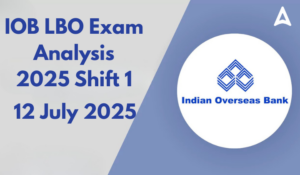G-Sec, short for Government Securities, refers to the debt instruments issued by the Indian government to borrow money from the public to meet its financial requirements. These securities are issued through the Reserve Bank of India (RBI) on behalf of the government. G-Sec is considered one of the safest investment options as it is backed by the creditworthiness of the Indian government. The topics related to the financial market and the economy are often asked in the banking awareness section in various bank exams. Here in this artilce, we have covered all the relevant information on Government Securities from a banking exam perspective.
Government Securities In India
The government securities market is generally at the core of financial markets in most of the countries in the world. The government securities market deals with tradeable debt instruments which are issued by the government for meeting its financing requirements. The development of the primary segment of this market gives an advantage to the managers of public debt to raise resources from the market in a cost-effective manner with due recognition to associated risks. The secondary market helps in the effective operation of monetary policy through the application of indirect instruments such as OMO (Open Market Operations).
The government securities market is generally considered the backbone of fixed-income securities markets as it provides the benchmark yield and imparts liquidity to other financial markets. The existence of an efficient government securities market can be seen as an important precursor, in particular, for the development of the corporate debt market. As in most countries, the central bank of India (RBI) manages public debt and it plays an important role in developing the government securities market. Most of the time to change the environment of the economy wide-ranging reforms in the government securities market were largely undertaken.
Government securities: G-sec is a debt instrument that is issued by a government and it can be issued by both central government as well as state government. Generally, risks associated with government securities are almost negligible and regular income can be obtained as interest. The main categories of Government securities are as follows: Treasury Bills (T-Bill), Cash Management Bills (CMBs), dated G-SECs, and State Development Loans (SDLs).
Types Of Government Securities In India
Government securities (G-Sec) in India can be broadly categorized into the following main types:
- Treasury Bills (T-Bills): Treasury Bills are short-term debt instruments issued by the Indian government to meet its short-term financial needs. They have maturities of 91 days, 182 days, and 364 days. T-Bills are sold at a discount to their face value and redeemed at face value upon maturity. The difference between the issue price and the face value represents the interest earned by the investor.
- Cash Management Bills (CMBs): Cash Management Bills are also short-term debt instruments issued by the government. They are used to tide over short-term liquidity mismatches. CMBs have maturities of fewer than 91 days and are issued based on the government’s immediate cash requirements.
- Dated Government Securities (Dated G-Secs): Dated G-Secs are long-term debt instruments issued by the government with maturities ranging from 2 years to 40 years. They carry a fixed or floating interest rate, known as the coupon rate, which is paid semi-annually to the bondholders. Dated G-Secs are commonly used by the government to finance its long-term projects and manage the fiscal deficit.
- State Development Loans (SDLs): SDLs are debt instruments issued by individual state governments in India to meet their financial requirements. Each state government issues its own SDLs, and these securities have maturities similar to dated G-Secs. SDLs provide state governments with a means to raise funds for development projects and other expenditures.
Government securities are an essential component of the Indian financial system. They serve as safe investment options for individuals and institutions, provide a benchmark for other interest rates in the economy, and enable the government and states to raise funds for various development initiatives and public expenditures.
| Related Articles | |
| Types of Cards used in Banking System | BASEL III Norms |




 GA Capsule for SBI Clerk Mains 2025, Dow...
GA Capsule for SBI Clerk Mains 2025, Dow...
 The Hindu Review October 2022: Download ...
The Hindu Review October 2022: Download ...
 IOB LBO Exam Analysis 2025, Shift 1 Ques...
IOB LBO Exam Analysis 2025, Shift 1 Ques...


